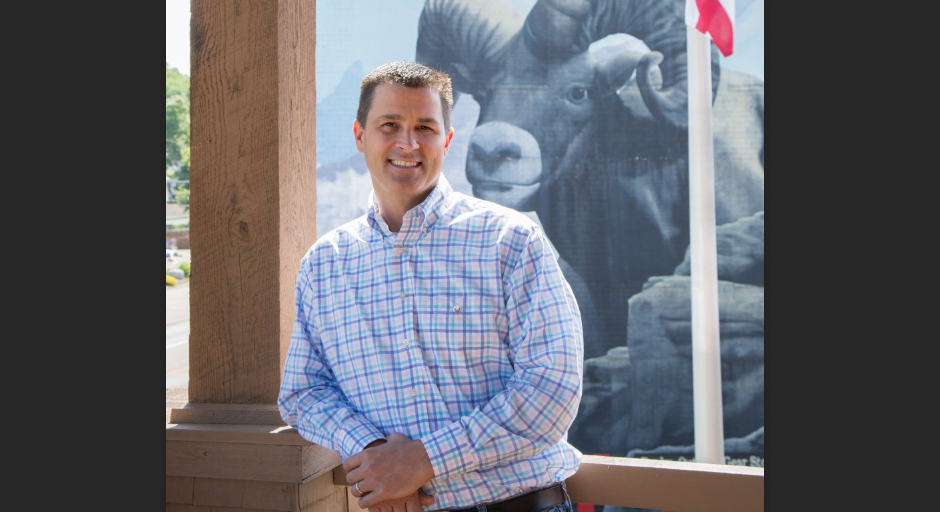Rocky Brands’ sales climbed 17.5 percent in the third quarter as the strong appeal for the retailer’s wide range of functional, affordable footwear offset inflationary consumer pressures.
Jason Brooks, president & CEO, in an interview with SGB Executive, talked about his long run at the family-run business, the acquisition of Honeywell’s lifestyle footwear business, and how the company is managing a challenging macroeconomic environment.
In May 2017, Brooks was promoted to president and CEO, replacing Mike Brooks, his father, who continues as chairman.
Can you tell us about your career and journey to CEO of Rocky Brands? My Great Grandfather, Mike Brooks, founded the company in 1932. I am the fourth generation in our family to lead Rocky Brands. I grew up in our factory in Nelsonville, OH, and spent a summer in the Dominican Republic learning to make boots at our manufacturing facility when I was in high school. I was a salesperson for seven years. I moved back to the corporate office in 2001 and have held multiple positions with Rocky and Georgia brands since then. In May 2017, I became CEO, Rocky Brands.
What are some of the biggest lessons you learned from your father? Be humble and kind; surround yourself with good people.
Rocky’s third-quarter sales came in above plan but lowered guidance for the year. How did the quarter go from a top-line perspective, and why the change downward? Q3 was an okay quarter, as we increased our margin and had an easier-than-normal sales comp from 2021. As things have changed in the market and retailers are over-inventoried, we felt it best to bring the outlook down just a little.
Rocky Brands has several brands and competes in multiple categories. Where are the company’s largest untapped opportunities? We have some of the strongest brands in the marketplace and see opportunity with them. Over the last couple of years, Durango and Xtratuf have seen the most growth. The Xtratuf brand has a loyal customer base, and we see the brand resonating with a broader consumer base who are both on and off the water. In the same vein, Durango has seen exponential growth in the Western market as the farming and ranching categories continue to surge. With all our brands, we understand, first and foremost, the importance of staying true and authentic to our core consumer to maintain that brand loyalty.
One of the company’s largest moves was the acquisition of the Honeywell lifestyle footwear business which includes Muck, Xtratuf and Servus. Why did you acquire the business? We felt the brands complemented our existing portfolio. When you look at Rocky, Georgia and Durango, they are primarily leather work boots. The Muck, Xtratuf, Servus, and Ranger brands are all rubber, neoprene or PVC. We sell to all the same customers we know well, and we knew it wouldn’t hurt our sales because the product mix is different. We knew nearly doubling the size of our company through the acquisition was a big endeavor, and while the full integration period was, I would say, longer and more arduous than initially expected, we acquired the brands because they had room for growth and now we are well-positioned to sustain that growth year-over-year.
Rocky also closed Honeywell’s Boston office. Can you talk about that decision and other steps the company has taken to offset cost pressures in the marketplace? When companies make acquisitions, it’s important to evaluate the assets coming with the deal and determine what needs to stay and what needs to go. These are not always easy decisions, but they must be made. We have found many synergies with the deal and will keep working on operational excellence to decrease expenses.
Rocky made strategic investments in its distribution centers and other areas over the last few years during the pandemic. How have they helped the business? We knew the acquisition was coming down the road, and we saw good growth with our Rocky, Georgia and Durango brands, so we felt the timing was right to invest in our distribution centers to be the best in class regarding serving our customers and consumers. We added to our U.S. facilities in Logan, Ohio and Rock Island, IL, and opened a new, 350,000-square-foot distribution center in Reno, NV, which created new job opportunities. A strong focus on operations and facilities has been critical in keeping up with demand during our expansion.
What have been the biggest challenges for Rocky Brands during the pandemic? The greatest challenge has been the uncertainty. When you think you have it figured out, it changes. The supply chain disruption is improving, and we believe it will continue to improve in 2023.
How do you see the varied inflationary and macroeconomic pressures impacting your brands and categories? Inflation and macroeconomics will have to affect everything in the market. We believe it will have less impact on us since we don’t sell fashion-driven products. Our boots are black and brown; they will sell today or tomorrow. We provide more of a need than a want. Our consumers are still working, and, in many cases, they have seen wage increases.
What’s your outlook for 2023? We are excited about 2023 and hope we can get back to more stability and less uncertainty. We are in a great position because we have very strong brands, and we need to stay focused on our operational excellence and keep our customers and consumers happy with the best product in the world.
Photo courtesy Rocky Brands
















